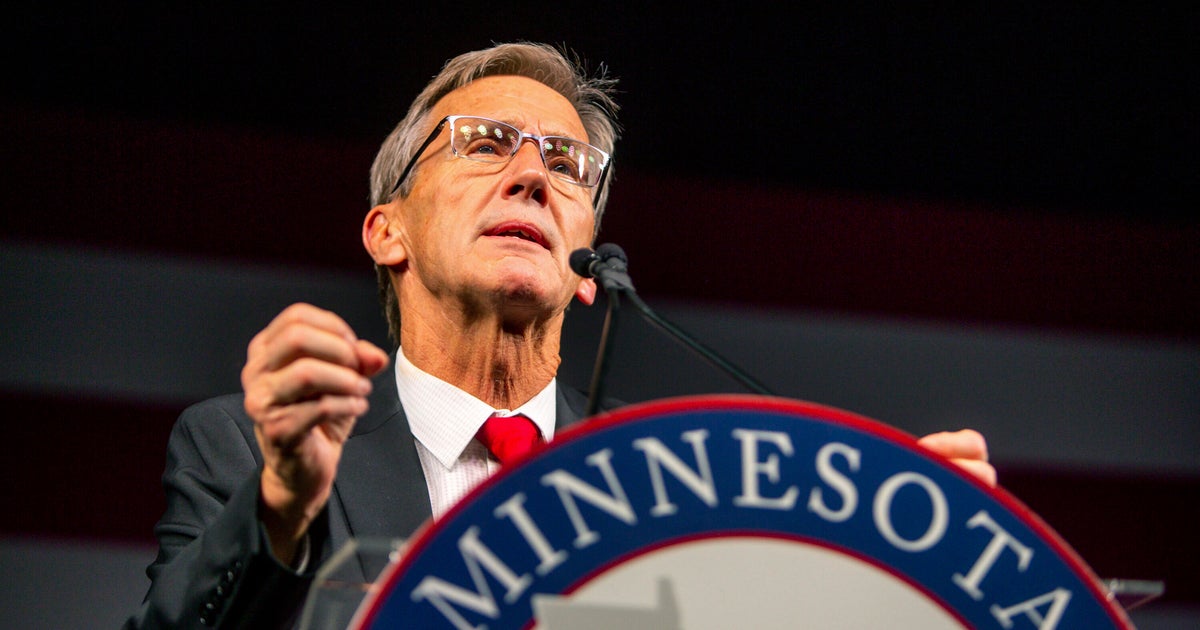Democrats express concern about Iowa's "virtual caucuses"
Members of the Democratic National Committee expressed skepticism Friday morning about the Iowa state party's ambitious plan to introduce "virtual caucuses" at the first contest of the presidential primary calendar next February.
The discussion came during a meeting of the DNC's Rules and Bylaws Committee (RBC), which sat down in Pittsburgh to go over and approve 22 states' plans for choosing delegates to the Democratic National Convention, including Iowa's.
An RBC member from Iowa, Scott Brennan, gave a presentation outlining the key changes to the Iowa caucus for the 2020 cycle, with the biggest change being the implementation of virtual caucuses, which would allow Iowans to support candidates without ever leaving home.
But the chief technology officer of the DNC, Nell Thomas, expressed concern that this new system might not work. "I hope you have a contingency plan," Thomas said.
Critics of the virtual caucuses proposal said they were worried about the capacity of the system, the security behind it, and how complex it will be for the Iowans who use it. "This is the future, but I don't know if we're there yet," committeewoman Donna Brazile, a former DNC chair, said. Another committee member, Frank Leone, said the process sounded like it made voting more complicated than it needed to be.
According to the presentation by Brennan, Iowans will have the opportunity to participate in one of six days worth of state-wide caucuses over the phone. During the call, they will have the option to support five candidates in order of preference through a ranked-choice system.
Here's how the proposal works. First, a virtual caucus-goer talks to a moderator, who reads off the name of every candidate and the number assigned to that candidate. The caucus-goer then enters the number of the candidate he or she wants to support. Then the process begins again, with the moderator listing the name and number of every candidate, and the caucus-goer entering their second preference.
This process will continue up to five times, although virtual caucus-goers can stop at three candidates if they like. If the candidate they want to support is at the top of the moderator's list, they can enter that candidate's number and move on to casting their vote for their next choice. If not, they will have to wait for the moderator to list every candidate again and again, setting up a situation where a caucus-goer has to potentially listen to the same list of over 20 candidates up to 5 times.
To receive delegates, a candidate must reach 15 percent of the total vote in the caucuses. The percentage candidates receive will be calculated on February 3rd, which is the last day of the virtual caucuses and the day of the in-person caucuses. If the virtual caucus-goers' first choice doesn't meet the 15 percent threshold, their vote will go to the next candidate on their list that reaches the threshold.
Voters will have the opportunity to participate in English or Spanish and can request a different language if necessary. The party will also accommodate participants who will need a transcription service.
If a voter participates in a virtual caucus, they cannot participate in an in-person caucus. Only ten percent of the state's delegates to the national convention will come from the virtual caucuses, but Brennan argued that the virtual caucuses will allow thousands more voters to have a say in the process.
Representatives from at least seven presidential campaigns were in the audience for the meeting. That includes RBC member Jeff Berman, who was President Obama's delegate director in 2008 and is manning Beto O'Rourke's delegate operation this cycle.
The Iowa section of the meeting lasted nearly two hours, and 16 members of the committee asked questions about the process. All of the questioners who expressed skepticism still commended Iowa for their effort.
The committee eventually approved Iowa's plan provided that the party move forward on suggestions from the committee. One item they're working on is creating a voting receipt. There will be an auditory confirmation of the vote over the phone, and Geiken said they're working on creating a secure email receipt.
The Iowa state party will also conduct an exercise in October to help ensure the process works.
In a statement, the DNC praised the Iowa Democrats' efforts.
"The committee members applauded the strong work being done by the Iowa Democratic Party and other states to increase participation in the process," spokesman David Bergstein said.
"We are working with every state party that is integrating these online tools so they can make their voting process secure and successful. We look forward to working with Iowa Democrats to address the committee's questions."



